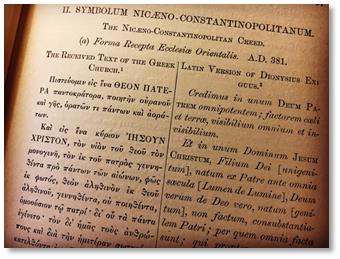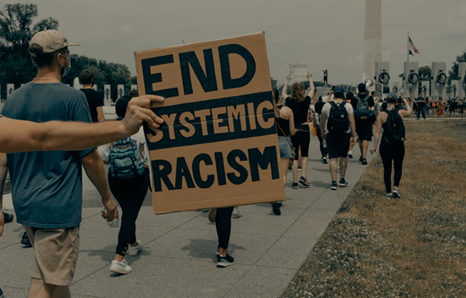 I saw a tweet last week asking whether Jesus would ever call someone a dog. The comment was related to a recent news item, and almost immediately, a text from Matthew’s gospel came to mind in which Jesus did in fact call someone a dog. He was talking to a Gentile woman asking him for help. Rather than answering her request immediately, he compares her to a canine.
I saw a tweet last week asking whether Jesus would ever call someone a dog. The comment was related to a recent news item, and almost immediately, a text from Matthew’s gospel came to mind in which Jesus did in fact call someone a dog. He was talking to a Gentile woman asking him for help. Rather than answering her request immediately, he compares her to a canine.
22 And behold, a Canaanite woman came out from that region, and began to cry out, saying, “Have mercy on me, O Lord, Son of David; my daughter is cruelly demon-possessed.” 23 But He did not answer her a word. And His disciples came to Him and kept asking Him, saying, “Send her away, for she is shouting out after us.” 24 But He answered and said, “I was sent only to the lost sheep of the house of Israel.” 25 But she came and began to bow down before Him, saying, “Lord, help me!” 26 And He answered and said, “It is not good to take the children’s bread and throw it to the dogs.” 27 But she said, “Yes, Lord; but even the dogs feed on the crumbs which fall from their masters’ table.” 28 Then Jesus answered and said to her, “O woman, your faith is great; be it done for you as you wish.” And her daughter was healed at once. –Matthew 15:22-28
At first blush, Jesus’ response sounds harsh, but I think that potential impression misses the point. It is true that first-century Jews sometimes referred to gentiles as “dogs.” But it is interesting that in this text, Jesus does not use the usual term for “dog” but the diminutive form. The term referenced a household pet, not a stray mongrel scavenging the streets for food. This may suggest that Jesus did not intend a stiff-arming insult. As William Barclay comments:
The tone and the look with which a thing is said make all the difference. Even a thing which seems hard can be said with a disarming smile. We can call a friend ‘an old villain’, or ‘a rascal’, with a smile and a tone which takes all the sting out of it and which fills it with affection. We can be quite sure that the smile on Jesus’ face and the compassion in his eyes robbed the words of all insult and bitterness.
In any case, this particular “dog” was demonstrating great faith. She knows that she needs mercy, not justice: “Have mercy on me.” She knows that Jesus is Israel’s long-awaited Messiah: “Lord, Son of David.” She is persistent: “Lord, help me!” And she knows her place—an undeserving beggar: “Even the dogs feed on the crumbs which fall from their masters’ table.”
Everything about this woman testifies to her great faith in Jesus as the Christ, and she knows that he can deliver. Her confidence in Jesus is so great that Jesus commends her for it: “O woman, your faith is great.” And Jesus ends up giving her the “crumbs” that he says were meant for the children. What does this mean? It means that even though she was a gentile “dog,” Jesus treats her as a child on the basis of her faith.
So yes, Jesus did in fact call this woman a dog. But calling her a dog wasn’t an insult. It was a prelude to mercy and acceptance. And that mercy and acceptance is still available to anyone who would believe in Christ like this woman did.
As you celebrate a Thanksgiving feast this week, think of the feast that has fallen to you from the Master’s table. Trust in Christ, and be thankful for the bread who came out of heaven and who gives life to the world—including to us dogs (John 6:33).




5 Comments
Pingback:
mscottc
I knew Denny Burk had to be hip, but when he posted an album cover from King’s X I knew he was legit.
Denny Burk
Love that album, especially “Lost in Germany.”
Christiane Smith
A good Thanksgiving to all here.
I remember shopping at a high-end grocery store here in my town and the grocer was culling older produce from the shelves and throwing it into a garbage bag. I asked him, ‘wouldn’t it be possible to give some of that food to the needy?’ And he replied that it was unwise to do that as it might result in lawsuits against the store if someone complained about the quality of the food. I had not known about this before and I thought also about how I had thrown out unused food from my own fridge on occasion. I have a ways to go before I can criticize the grocer or the store. Maybe someday, we will become better stewards of the abundance our country has given us . . . we have so much . . . and there are others who have so little.
‘I thirst’. That cry still resonates, even in the land of plenty, . . . especially in the land of plenty.
Ken Temple
Good post Denny; and see here for more on this passage.
…